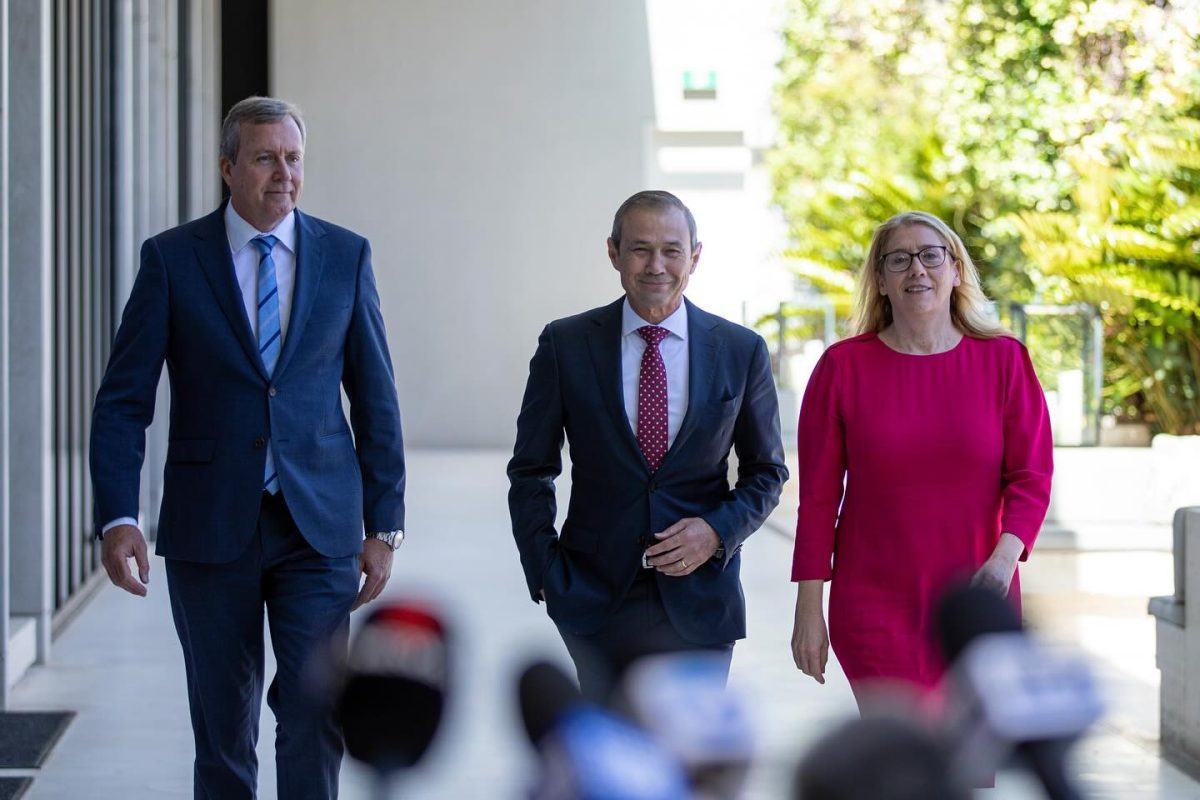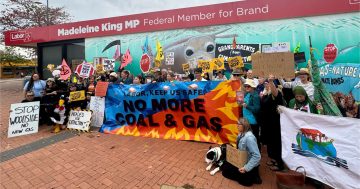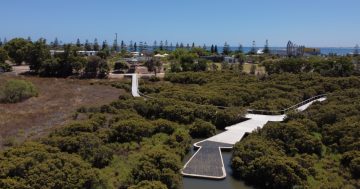
Environment Minister Reece Whitby, Premier Roger Cook and Treasurer Rita Saffioti announced the changes at a business breakfast in Perth on 12 December. Photo: Facebook/Reece Whitby MLA.
The Conservation Council of Western Australia has criticised the State Government’s recent moves to overhaul the environmental assessment system, calling it a “major threat” to WA’s nature.
The WA Government announced the changes to the environmental approvals system on Tuesday (12 December), which it hopes will unlock billions of dollars of investment into major job-creating projects while also protecting WA’s environment.
The changes follow a “short, sharp review” of environmental approvals commissioned by the Cook Government in October. This found that approvals processes have become “overly complex, time-consuming, and costly – holding back economic development without any benefit to the environment”.
Premier Roger Cook said all of the review’s 39 recommendations were either accepted or noted.
A series of changes to the Environment Protection Act 1986 will be made in light of the review, including allowing the Environment Minister to direct the Environment Protection Authority (EPA) to assess a project of state significance within a specified timeframe, and allowing other government approvals processes to run in parallel with an EPA approval.
The WA Government says the latter alone will significantly cut down on approvals timeframe. For example, under current laws, a mining proponent cannot begin the assessment process on a wastewater treatment plant on its mine site until the mine itself has environmental approval, delaying final approvals by months.
Further work will also be undertaken on reducing the duplication in EPA assessments, with a particular focus on assessments of emissions from projects already covered by the Commonwealth’s Safeguard Mechanism, and Aboriginal cultural heritage assessments.
In order to facilitate these efforts, a new Coordinator General role and team will be established within the Department of Jobs, Tourism, Science and Innovation. Their mandate will be to prevent and resolve delays to priority projects, while providing regular reports to Cabinet on the progress of major projects and further regulatory reform opportunities.
“It’s important we have a strong approvals system to protect WA’s unique environment, but right now, our system isn’t working,” Premier Cook said.
“Our economy is growing, and our success in attracting major projects to WA has seen a significant increase in the number of applications for assessment to the EPA – putting unprecedented strain on the system.”
However, the Conservation Council says the proposed changes are “concerning” and criticised the WA Government for carrying out a “rapid review that did not involve consultation with conservation groups”.
Despite the government’s assertion that further consultation with industry and conservation groups will be undertaken, the group has called on Premier Cook to commit to a genuine consultation process before going any further.
The council said the review “missed the crucial context” that “largely unrestricted mining, industrialisation, and land clearing, along with increasing greenhouse pollution, is already threatening to drive many of WA’s unique plants and animals further into the extinction abyss”.
“These changes risk making the environmental crisis in WA even worse,” it said.
The Conservation Council said the changes would undermine the integrity of the environmental assessment process and the independence of the EPA through fast-tracking industrial projects, enabling the Minister to impose the government’s priorities and policies on the EPA, and removing the crucial oversight of the quality of EPA assessments through the appeals process.
Speaking on behalf of WA conservation groups, Conservation Council president Dr Richard Yin said the changes amount to the most radical overhaul of environmental assessment laws in decades.
“We have not been consulted about these major changes which present a serious threat to our already depleted environment,” he said.
“There are some changes on the fringes that we agree would make sense, including to ramp up funding for the EPA and to find ways to retain and attract its hardworking staff.
“There are much smarter ways to help facilitate better assessment processes for genuine renewables projects than a reform agenda that appears to be a Trojan Horse to enable the big end of town to wield even more influence.
“It’s business as usual on steroids.”











